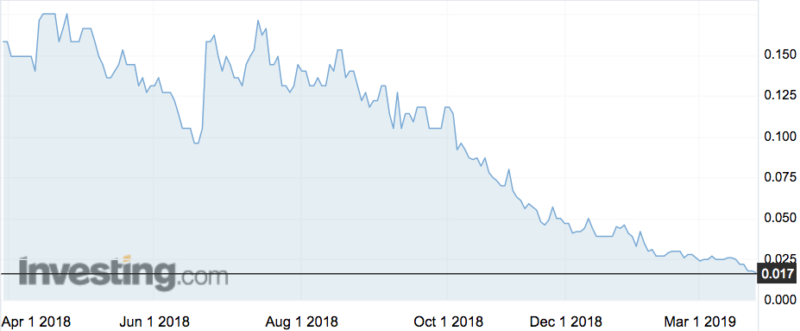Health: Neurotech fires a strategic adviser after claims he’s a dud, shares fall 17pc

Pic: sinology / Moment via Getty Images
Brain biotech Neurotech (ASX:NTI) has just fired a strategic adviser after an investigation by a Maltese newspaper found he had lied about his professional qualifications.
Dr Adrian Attard Trevisan was terminated from his role providing “specific advisory services” to the company following the allegations, which were “deeply disappointing”, the company said.
- Scroll down for the ASX’s other health movements today.
Neurotech focuses on treating people with neurological conditions and its flagship device Mente is a home therapy aimed at increasing engagement and improving relaxation in kids with autism.
Dr Attard Trevisan originally ceased employment with the company in April 2016 but remained as a director until June last year, when he retired.
But by December he was back, with the company trumpeting the return of the “founder and visionary of the Mente therapy for Autism” as a strategic advisor with particular focus on medical and artificial intelligence.
“I greatly value the insight and energy that Adrian brings to the business and look forward to a fruitful and long-last partnership that will build value for all,” Neurotech CEO Peter Griffiths said at the time.
But following a Times of Malta report — asserting Dr Attard Trevisan lied about having a PhD in neuroscience from University College London — Neurotech fired him, saying his advisory role was a “limited one”.
“Neurotech’s flagship product Mente is the result of much more than the work of one person,” the company said today. “Neurotech’s dedicated Mente team has worked for many years to create, refine and improve the device and its therapeutic outcomes – and that work continues today, and into the future.”

Dr Attard Trevisan told Maltese journalists that he had made a “mistake” and that he was unable to complete the UCL PhD so transferred to Milan University, where he obtained a PhD in human physiology in 2015.
It’s not the first time Dr Attard Trevisan has courted trouble for the company, either. Earlier this month he and Neurotech’s Maltese subsidiaries AAT Research and AAT Medical, were sued by a former employee of AAT Medical, who claims Dr Attard Trevisan used copyrighted material in a doctoral thesis in relation to epilepsy without due acknowledgement to the author, Dr Rudi Agius.
Dr Agius is seeking compensation for loss and damages, but Neurotech says his claims are “without any basis in fact and in law”, although adds it “insists that this is a private matter between the plaintiff and Dr Attard Trevisan”.
Comment has been sought from Neurotech.
- Subscribe to our daily newsletter
- Join our small cap Facebook group
- Follow us on Facebook or Twitter
In other ASX health news today…
G Medical (ASX:GMV) has called a meeting to issue $35m worth of shares on the Nasdaq. It hopes this will alleviate its money woes for a spell.
Delays in getting approval for its China manufacturing sites has put serious strain on the budget, leading CEO Yacov Geva to continually tip in more money in 2018. Purchase orders worth $22m in January and a cap raise should help.
Struggling biotech Phosphagenics (ASX:POH) under goes leadership changes. The drug delivery company that lost the bulk of its value when it lost a court case last year has announced its CEO Dr Ross Murdoch will step down and become a director.
The company said Dr Greg Collier will assume the role of chairman and work alongside Phosphagenics’ chief scientific officer and general manager of animal health and production as part of an executive management team. Phosphagenics will not look for a new CEO.
Fellow struggling biotech Suda Pharmaceuticals (ASX:SUD) appoints an ex-EY auditor to board. David Simmons, who was a senior audit partner with Ernst & Young for 18 years, has been appointed to the board of Suda.
“He will be a key player in supporting the continued growth of the business,” Suda CEO Stephen Carter said.
Exopharm (ASX:EX1) says developments in the field of exosomes will benefit it. Recent pre-clinical studies have confirmed the regenerative potential of exosomes, tiny bubbles released from cells that are able to transport proteins and genetic information between both neighbouring and distant cells.
Exopharm says its LEAP technology, which can purify exosomes, has it placed to be a leader in the field.
Mesoblast (ASX:MSB) conducting a clinical trial for marketing purposes. Midcap Mesoblast will conduct a “confirmatory” clinical trial in order to support its product candidate Revascor through marketing approval for treatment of gastrointestinal bleeding in patients with end-stage heart failure who have been implanted with a left ventricular assist device.
UNLOCK INSIGHTS
Discover the untold stories of emerging ASX stocks.
Daily news and expert analysis, it's free to subscribe.
By proceeding, you confirm you understand that we handle personal information in accordance with our Privacy Policy.








